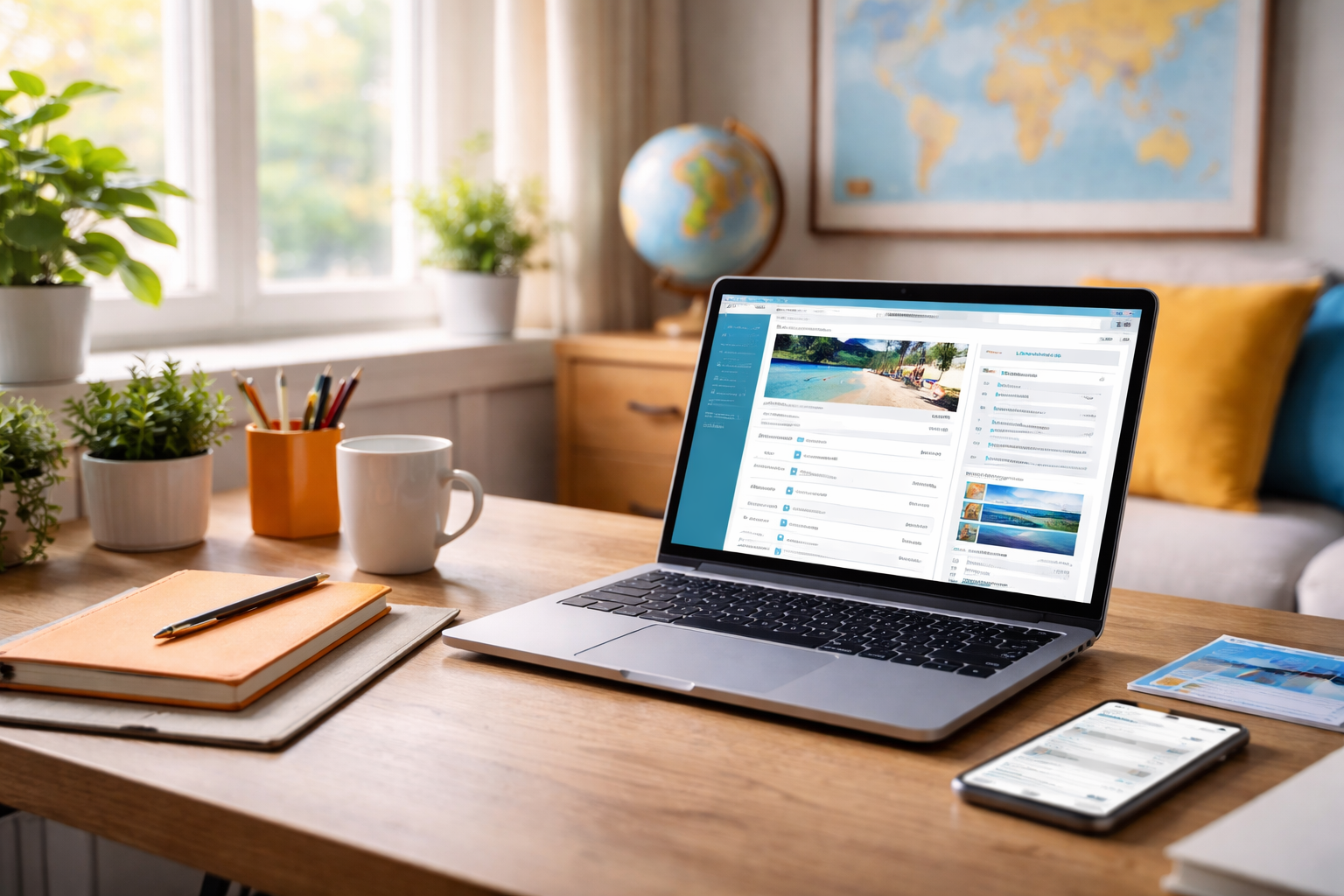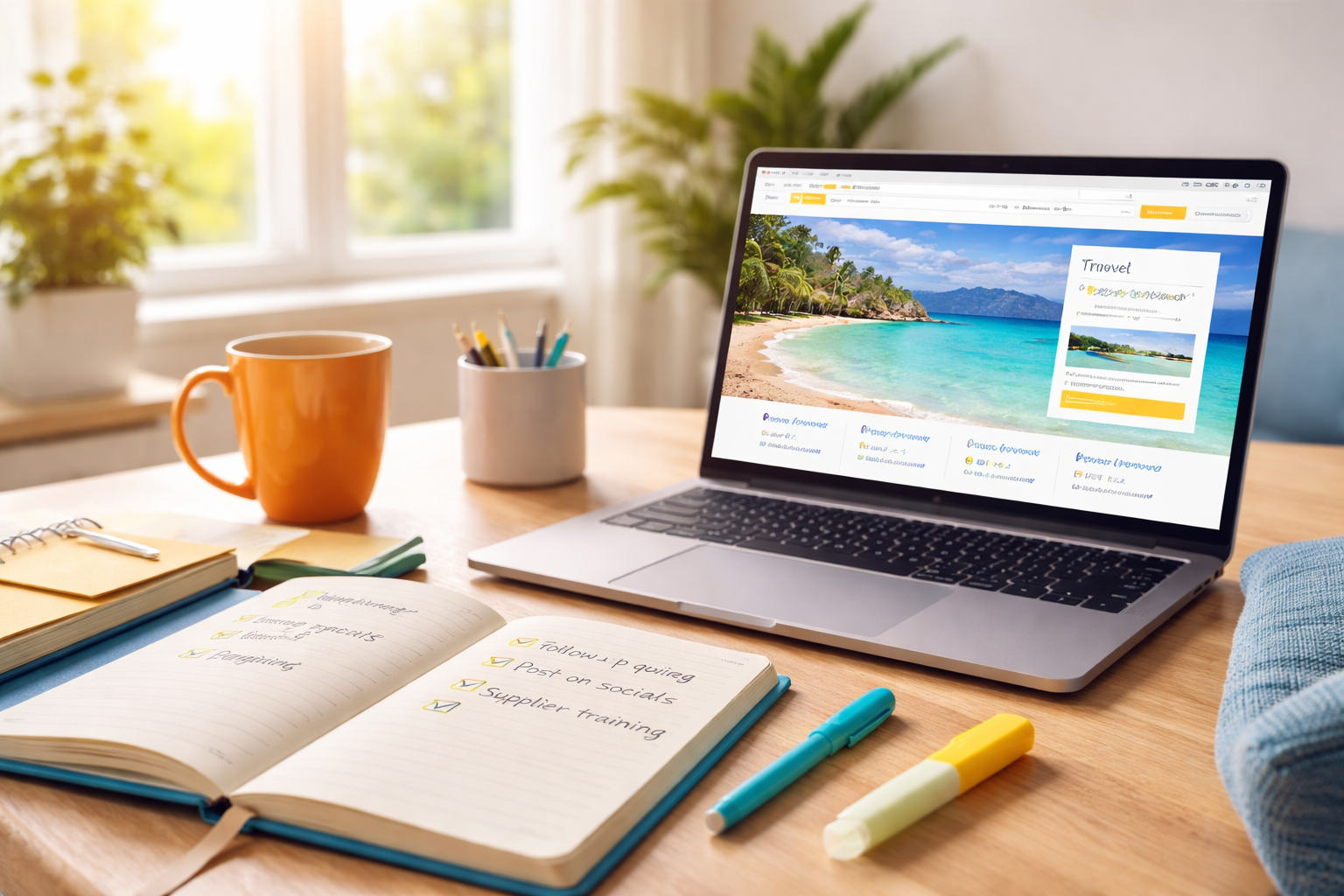Should You Start a Travel Blog? Benefits and Strategy Tips
Should You Start a Travel Blog? Benefits and Strategy Tips

Blogging for travel agents has become one of the most effective ways to stand out in an increasingly competitive market. A well-written blog can showcase your expertise, build trust with potential clients, and position you as the go-to expert for tailor-made holidays. For travel homeworkers in particular, a blog can be the bridge between working independently and building a visible, credible brand that attracts enquiries.
If you’re considering starting a travel blog but aren’t sure whether it’s worth the effort, this guide explores the key benefits and provides practical strategy tips to get you started.
Why Blogging Matters for Travel Agents
Many new consultants entering travel homeworking ask whether they should focus on social media or a blog. The truth is that the two work hand-in-hand. While social platforms are great for instant visibility, blog content has a much longer shelf life. A blog post written today can still attract clients months or even years later, thanks to search engine optimisation (SEO).
For travel agents, this means your expertise doesn’t disappear in a fast-moving feed—it stays searchable, discoverable, and valuable. Unlike adverts or sponsored posts, blogging costs little more than your time, but the return in client trust and visibility can be significant.
Benefits of Blogging for Travel Agents
1. Build Authority and Trust
A blog allows you to demonstrate expertise on destinations, holiday styles, and insider tips. When potential clients read your posts, they see you as a knowledgeable travel professional, not just a salesperson.
2. Boost Your SEO and Visibility
Each blog post creates a new page that Google can index. By targeting key phrases such as “family holidays in Greece” or “best safari destinations,” you can attract organic traffic that may never have found you through social media alone.
3. Generate Enquiries While You Sleep
Travel homeworking often means juggling marketing, enquiries, and admin. A well-optimised blog continues to bring leads long after you’ve written it, giving you a consistent flow of enquiries without constant posting.
4. Showcase Your Personal Brand
Clients want to book with someone relatable. A blog lets you share your personal travel stories, style, and values—helping readers connect with you on a human level.
5. Provide Evergreen Content
Unlike time-sensitive offers, blogs can remain relevant for years. A post about “packing tips for long-haul travel” or “how to make the most of a city break” will always be useful.
Strategy Tips: How to Start Blogging as a Travel Agent
Know Your Ideal Client
Before writing, identify who you want to attract. Are you targeting families, luxury travellers, or adventurous couples? A travel homeworker specialising in Disney holidays will blog differently to one focusing on safaris.
Plan Your Content Calendar
Consistency is key. Aim to publish at least two posts per month to build momentum. Mix destination guides, travel tips, and posts that answer common client questions.
Use SEO Wisely
Always include your focus keyphrase (like blogging for travel agents) naturally in titles, introductions, and headings. Use tools such as Google Keyword Planner or Ubersuggest to identify what people are searching for.
Repurpose Your Blog Content
Don’t stop once your post is published. Share snippets across social media, turn tips into a newsletter, or even film a short video using your blog as a script.
Balance Storytelling with Sales
The best travel blogs are a mix of personal experience and professional advice. End each post with a subtle call to action: invite readers to contact you, request a quote, or explore your other services.
Blogging for Travel Homeworkers
For many new travel homeworkers, starting a blog can feel daunting—but it doesn’t need to be. Think of your blog as a digital storefront: it tells clients who you are, what you specialise in, and why they should trust you with their holiday plans.
Blogging also levels the playing field. You don’t need a huge marketing budget to compete with big agencies; you just need consistent, well-targeted content that speaks directly to your audience. That’s where travel homeworking really benefits from blogging—it gives you visibility and authority without the overheads of a physical shopfront.
Jamie Says:
"When I first started working in travel, blogging was one of the most powerful tools I had to build credibility. It not only attracted clients who were searching for expert advice, but it also gave me a way to showcase my passion for travel in my own voice. If you’re a new travel homeworker, starting a blog can help you build a brand that clients trust—and it will keep working for you long after the post goes live."
Final Thoughts
Blogging for travel agents isn’t just about writing for the sake of it—it’s about creating content that attracts, engages, and converts readers into clients. For travel homeworkers especially, a blog can be the difference between being invisible online and becoming a trusted expert in your niche.
If you’re ready to take your travel homeworking journey seriously, start planning your first blog post today. Choose a topic that excites you, optimise it for search engines, and share it across your channels. Your blog could be the key to unlocking consistent enquiries, stronger branding, and a growing client base.
About Jamie Wake
Jamie is the founder of The Independent Travel Consultants and a passionate advocate for empowering others to succeed in the travel industry through honesty, training, and community. He brings decades of travel experience, a focus on doing things differently, and a strong commitment to supporting UK-based homeworkers.












